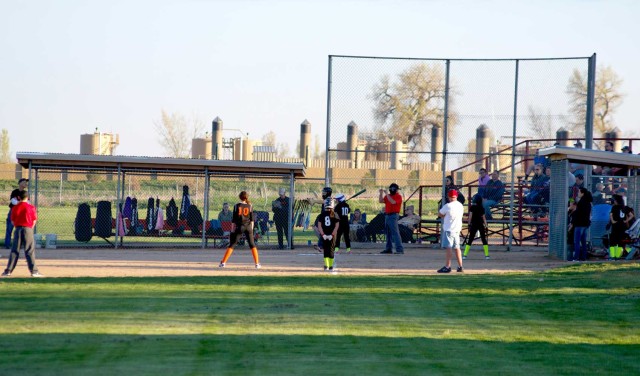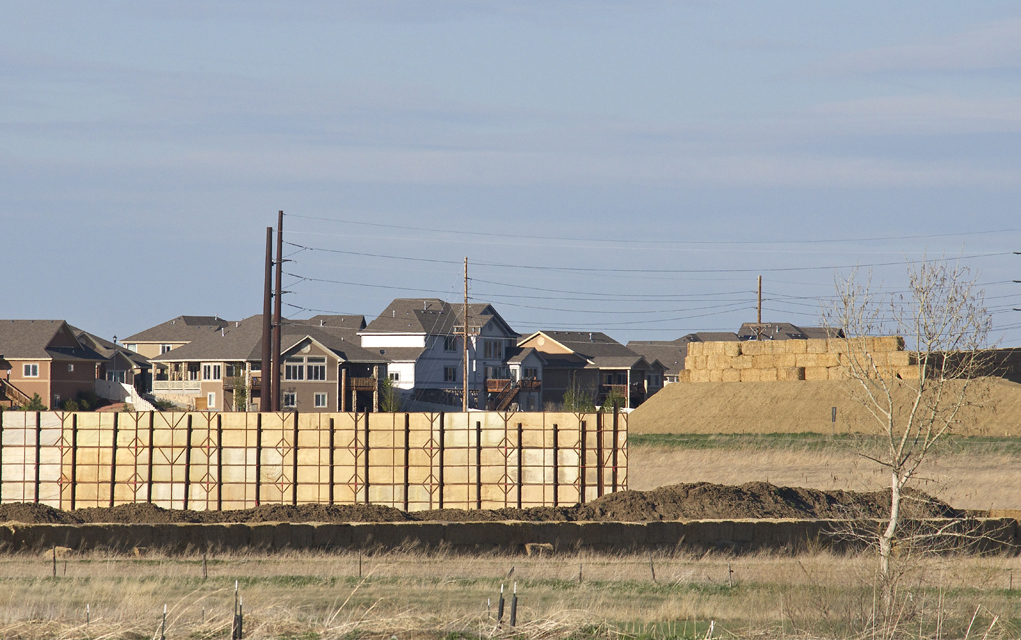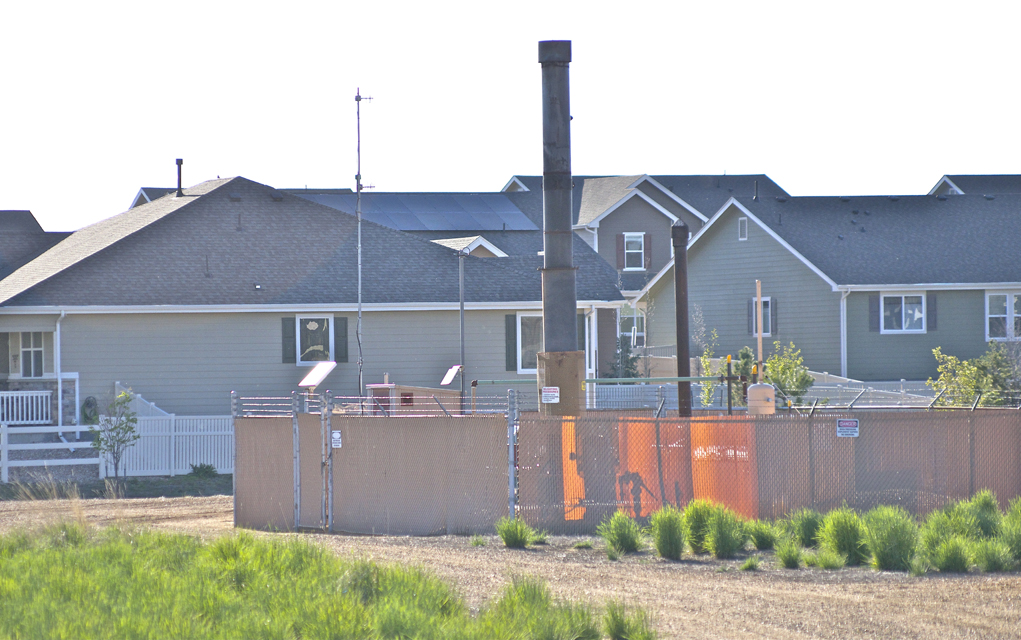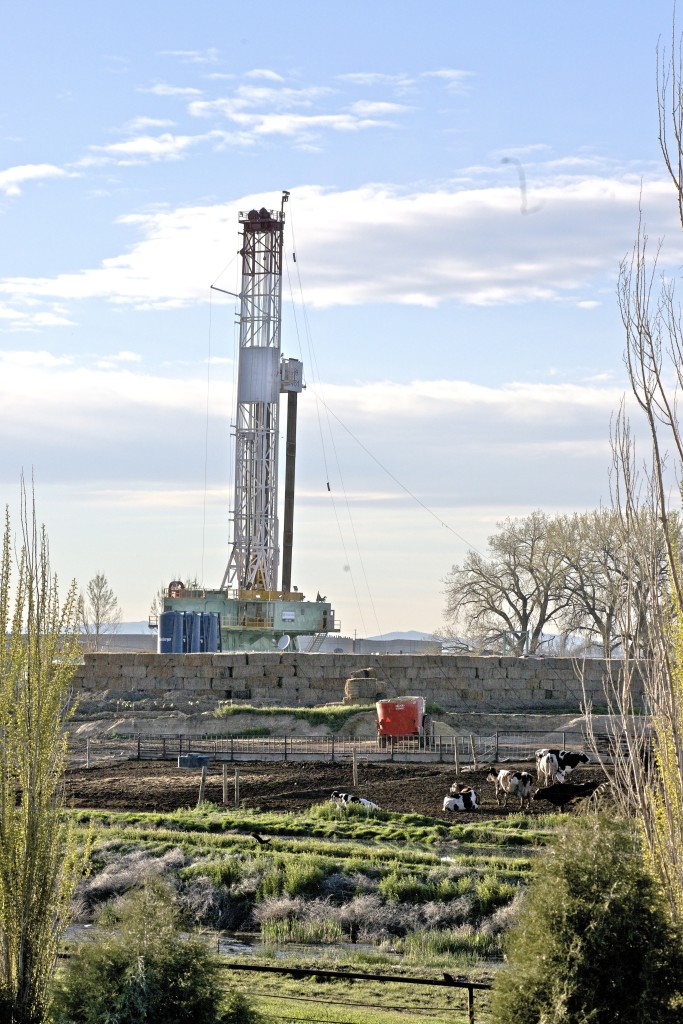
It was quite a read. The further I delved into the Colorado Supreme Court’s decisions to overturn Longmont’s ban on fracking and Fort Collins’ five-year, voter-sanctioned moratorium on the same practice, the more disturbed I became.
The decisions, which were predictably announced by recent Hickenlooper appointee to the Supreme Court Judge Richard Gabriel, didn’t just say that the ban and moratorium were in conflict with state law as has been widely reported in the media. Oh no, they went much further than that. Upon closer inspection, I found these rulings read more like a climate change-denier’s manifesto than the narrow opinion on preemption that they claim to be.
According to the Court, it had to determine if oil and gas extraction was to be governed by state, local, or a mix of state and local regulations. In order to do this, the Court asked and then answered several questions beginning with, “Is there a need for statewide uniformity” when it comes to oil and gas extraction?
The Court concluded that while “uniformity in itself is no virtue, it is necessary ‘when it achieves and maintains specific state goals.’”

OK, so what are these “specific state goals?” I’ll leave the question of “who is the state?” for later.
The Court determined that the “state’s goals,” based on existing law, include preventing anything, when it comes to drilling methods, spacing and well patterns, that could cause “less than optimal recovery and a corresponding waste of oil and gas.”
The court then determined that Longmont’s “ban on drilling within the city limits could result in uneven and potentially wasteful production of oil and gas… ”
I should point out that Longmont never actually banned drilling in its city limits, just fracking, but that’s just one of the giant details lost at times on a Supreme Court that appears to have been trained at the Hickenlooper School of Critical Thinking.
So in the end, the Court determined that the “state’s goals” are to optimize oil and gas recovery and prevent waste, and that the Longmont ban fails to maximize recovery and causes waste so it is clearly in conflict with the state’s goals and state rules and regulations designed to support the state’s goals. Therefore, the ban is illegal and no longer in force and effect. Case closed.
This perceived state goal to maximize production is basically the underlying tenet that guided the Supreme Court’s entire decision-making process.
The Court found that local governments can use their authority over zoning and land use when it comes to oil and gas extraction within their city limits, but only so long as local regulations are not in conflict with the “state’s goals.” In other words, local governments can write and enforce regulations on the oil industry only if those regulations help to maximize the amount of oil and gas coming out of the ground and prevent any hydrocarbons from being wasted by being left in the ground.
Conversely, local regulations designed to prevent a company from locating a well near a school where it would force school children to breath in harmful volatile organic compounds (VOCs) and ground level ozone would not be allowed under the Court’s ruling. Nor would regulations that protect the planet by causing hydrocarbons to be left in the ground where they can’t cause global warming.
Even a regulation designed to create well setbacks extensive enough to protect an entire neighborhood from having its property values destroyed would be overturned by this ruling because, according to the Court, making an oil company drill further horizontally makes a well more expensive to drill and that wouldn’t be fair to mineral owners or the company, which means — you guessed it — it would not be supportive of the “state’s goals.”

Are you getting a little queasy yet?
The hypocrisy contained in the pages of these rulings is boundless. While it’s illegal for a community to enact any ordinance that could result in wasted natural gas, even if such a law is designed to protect human health, property values and/or the environment, the oil and gas industry is allowed to flare billions of cubic feet of natural gas into the atmosphere every year. It does this because it doesn’t want to go to the expense of building a pipeline to transport the stuff while there is a gas glut and prices are low. Entire natural gas fields have been found to be losing up to 10 percent of their overall production capacity into the atmosphere because of leaky pipelines, bad cement jobs and shoddy well plugging.
It would seem that when it comes to the “state’s goals,” only the industry is allowed to minimize production and waste oil and gas, and it does so at the expense of the air we all breath.
This Court’s lengthy explanation for why it rendered rulings that not only ended Longmont’s ban and Fort Collins’ moratorium but will ultimately unwind all the bans and moratoriums along the Front Range, is utterly unbelievable and unjustified in this day and age.
These decisions might have seemed in step with the world 75 years ago, but not today.
They truly lack scholarship and common sense. This Court’s logic reminds me of an inexperienced debater whose entire argument is based on a poorly thought out and inaccurate original assumption. How is it in 2016 that “the state” has an obligation to maximize the amount of hydrocarbons that are extracted and subsequently burned?
How can a Colorado court in the modern world rule that any hydrocarbon left in the ground is being wasted when it knows that every hydrocarbon extracted translates into more greenhouse gasses being released into the atmosphere?
It’s like Colorado is stuck in a time warp. Other state courts in places like Washington and New York are ruling that States actually have a legal obligation to preserve the air and water for future generations. These courts have sided with young people suing to stop oil and gas extraction, but not in Colorado.
There is plenty of language on the books in Colorado regarding citizen’s rights to health and the state’s obligation to protect the environment to have allowed this Court to come to a different conclusion. The Supreme Court chose to only consider the sliver of language supporting the oil and gas industry, and for that it is as culpable for this foolishness as our climate change-denying Governor and his band of industry-influenced jesters in the state legislature.
This decision is incredibly shortsighted in a place where the economy and quality of life depend primarily on maintaining a pristine environment.
Colorado is a state that cares about the environment… wait, according to the Supreme Court, “the state” only cares about maximizing production and preventing waste by making sure that no oil and gas is left in the ground. This state thing is so confusing. I’ll get back to that in a minute.
For now, I will say that Colorado is a state full of people who care about the environment and I must say, believe in science as well.
Aside from the fully discredited, climate change-denying lies being put out and paid for by the oil, gas and coal industries, the scientists of planet Earth are virtually unanimous in their belief that climate change is occurring, mankind is contributing to it via the burning of oil, gas and coal, and that global warming is the greatest threat to mankind at this very moment.
These same scientists, and I might add the vast majority of all Colorado residents, also understand that if we develop even a third of the world’s known hydrocarbon reserves, we will pass the point of no return, if we haven’t already, destroying our planet and our children’s future.

This isn’t some pretend business battle that can be won by manipulating a handful of judges appointed by politicians whose loyalty is to their industry keepers. This battle is about our very survival, our lives, our loved one’s lives. The courts, even the almighty Supreme Court of Colorado, cannot order us into mass extinction in the name of industry profits.
So just who is “the state?” For the purposes of these Court rulings, it seems the composition of “the state” starts with our fracking-fluid-drinking governor, his oil and gas industry pals and a majority of the 100 politicians in both parties who currently comprise the Colorado General Assembly. But it’s a little more than that.
In a real democracy one could argue that by way of representation, the voters are also part of “the state,” but we haven’t lived in a real democracy since 2002 when four billionaires first orchestrated their takeover of our state government via the infamous “Blueprint.” If you’re unfamiliar with this disgusting part of Colorado history, look it up. It’s quite enlightening. It has become the model for the establishment takeover of our entire nation.
Colorado hasn’t changed much since 2002. We’ve just added a few more wealthy influencers to the mix. I would argue that “the state,” as mentioned in these Supreme Court decisions, is actually comprised primarily of the oil and gas industry, its political minions as mentioned above, along with the 118 uber-wealthy members of Colorado Concern and a relatively small number of other such lobbyists, political operatives and wealthy campaign donors who have made clear their desire to maximize oil and gas extraction.
If this 1,000 or so folks, counting lobbyist and major campaign donors, are “the state,” then what the hell are the other 5.3 million of us who call this place home? You know, the 5.3 million of us who apparently aren’t allowed to do anything that might conflict with “the state’s” goals which now require us to do nothing more than stand by and suck in the pollution as they extract as much oil and gas as humanly possible from beneath our homes, giving special attention not to waste any of it by leaving it in the ground where the scientists tell us it must be left if we are to survive.
How did we get here? Why didn’t we see this coming years ago?
It would have been nice if the major media had done its job and played watchdog over this industry and its political pals, but that didn’t happen because the major media in these parts was too busy stuffing its pockets with oil industry money in the form of tens of millions of dollars in advertising revenue.
As if we can be persuaded to kill ourselves by yet another oil industry commercial featuring its employee trampling down the tundra as she explains that she is an environmentalist and actually got into the oil and gas industry because it was important to her to protect the environment. Huh? That argument is as illogical as the one the Supreme Court just handed down.
And The Denver Post… it has gone even further to support “the state” than the TV stations who trade their silence on the fracking issue for millions of ad dollars.
Consider that Mac Tully, President and CEO of The Denver Post, is actually one of the 118 members of Colorado Concern. That’s right, the top guy at the Post is a member of the state’s arguably most powerful lobbying organization — an organization that not only supports maximizing oil and gas production, but also played a pivotal role in keeping the last community control and increased setback initiatives from making it onto the ballot in 2014.
Colorado Concern supported the two pro-industry initiatives that were pulled as part of the trade Rep. Jared Polis made with Hickenlooper, which resulted in throwing away roughly a quarter million signatures that could have given us the right to vote on this issue years ago.
And it gets worse. Tully’s Colorado Concern was actually signed on to the lawsuits against Longmont and Fort Collins as a friend of the court (Amicus Curiae) in support of Colorado Oil and Gas Association, the Colorado Oil and Gas Conservation Commission and Top Operating Company.
No surprise then that Post employees helped sell ads into the newspaper’s 2014 fake “energy and environment” section, a pro oil and gas section paid for by Citizens for Responsible Energy Development (CRED), an organization funded by Anadarko Petroleum and Noble Energy.
I should also point out that Tully is the person most Post employees live in fear of when it comes to layoffs and buyouts in the newsroom. And the Post is once again in the process of losing another 26 journalists, one-fifth of its newsroom staff. That makes for a total one-third reduction in newsroom staff in just the last 12 months.
All this is my of way of pointing out that it isn’t likely that you will be seeing any Post coverage particularly critical of this Supreme Court Ruling that found in favor of Tully’s friends.
But you never know for sure. Digital First Media, the Post’s parent company, also owns the Daily Camera and the Times-Call, and Camera Editorial Page Editor Dave Krieger recently penned a brilliant editorial on this issue in the paper’s May 4 issue. Journalists are a feisty breed; they sometimes stick it to their own owners. But I digress.
I suspect all this sounds familiar to Bernie Sanders supporters. I’m not telling you anything you don’t already know about who really runs things. The bottom line is that unless we stop these establishment bastards who have hijacked our democracy in the interest of their own short-term, personal profits, they are going to destroy everything we care about in this state.
Imagine the arrogance and self-importance of this handful of industry insiders, politicians, judges and millionaires telling us, the people of Colorado, that we are required by law to help them maximize oil and gas production and profits.
I DON’T THINK SO.
And I’m willing to write another $27 check to the people who are collecting the signatures that will put the new local control etc. initiatives on the November ballot, initiatives that will fix this mess once and for all.
Even this Supreme Court acknowledged that its ruling was based on the fact that the Colorado Constitution currently offers no guidance as to whether local or state oil and gas regulations were the superior law of the land. Well, it’s time to give this Supreme Court the constitutional guidance it needs to reverse this ridiculously industry-/establishment-friendly ruling.
No more elitist manipulation of our democratic process. We’ve already proven that the informed people of Colorado can win against this collection of wealth and political power with its millions in TV and newspaper advertising.
It’s because we’re not stupid. If we will only engage, we outnumber them by 5.3 million votes. They can only control us if we let them.
It boils down to who are we going to listen to: The 1,000 people who comprise “the state” in this Supreme Court decision, or our friends and fellow Colorado citizens who agree with the world’s scientists who have told us we must leave it in the ground if we are to survive?
No court can order us to commit mass suicide in the name of profit. That is an end that we can only inflict on ourselves by being politically lazy or blind to reality.
So what now?
Find a petition and sign it. Keep the political revolution that so many of you have worked so hard for alive. You may not take the White House this year, but you can take back your state. It just takes 1,500 people collecting 100 signatures from their friends and neighbors.














